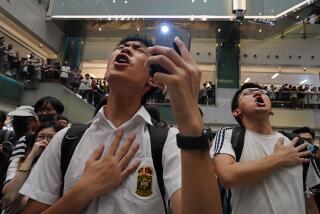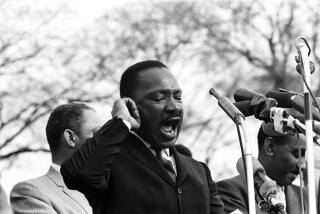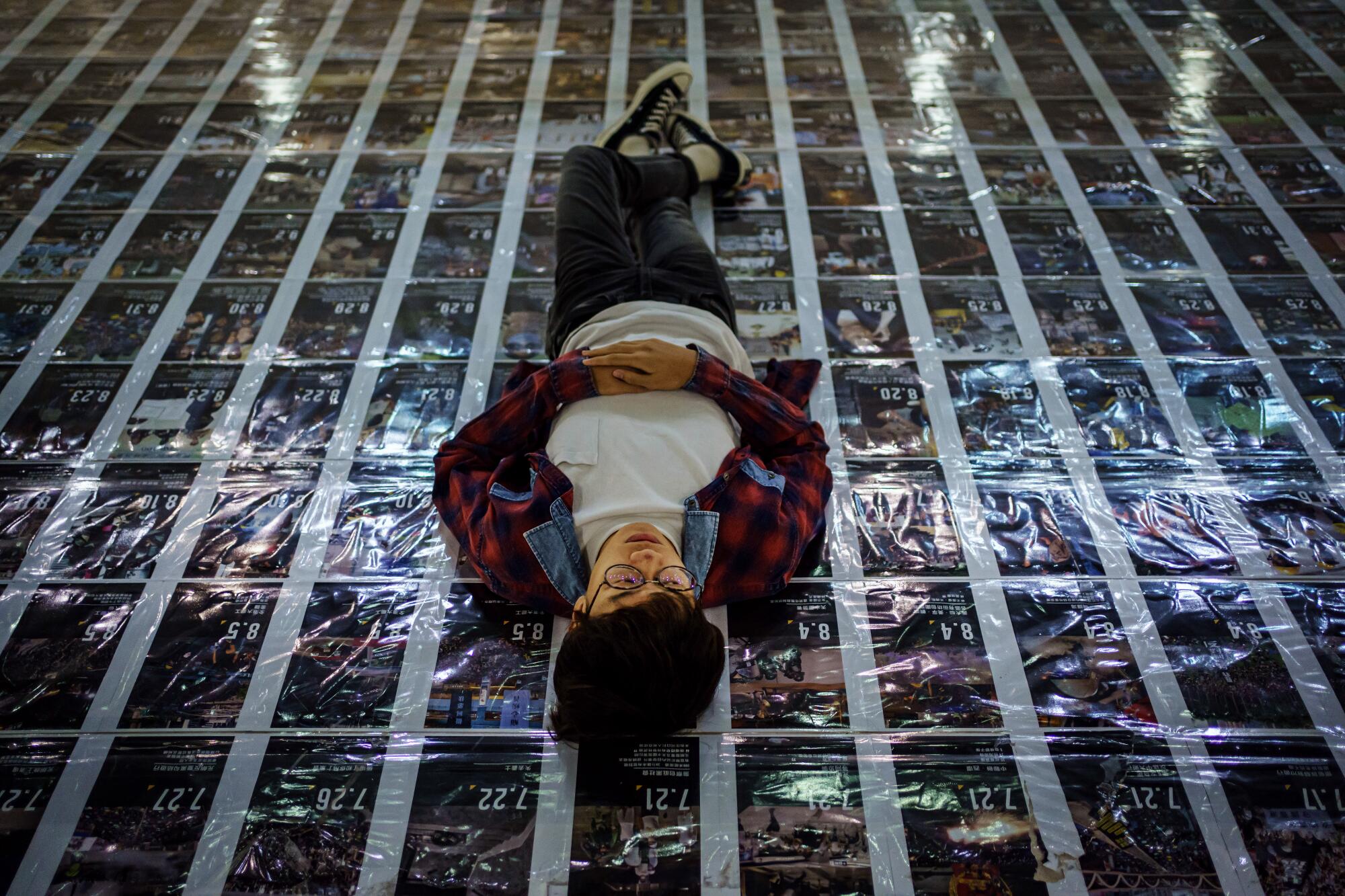
HONG KONG â It was Eddie Hoâs worst nightmare: calling one of the boysâ parents to say that theyâd been arrested.
Ho, 31, had managed Boyz Reborn, a teenage boy band in Hong Kong, since the boys were elementary school kids during his social worker days at a community center in a suburban public housing estate.
Theyâd grown up together, the nine members flipping their hair, strumming guitars and belting out songs about the trials of growing up. Schools and local TV stations gushed over how cute and socially conscious they were.
That was before their songs took a political turn, shifting from grades and girls to tear gas, freedom of thought, and self-determination.
Born in a post-handover Hong Kong that officially belonged to China but had not yet been integrated into the mainland system, the boys are part of a generation that has taken a frontline role in Hong Kongâs six-month protests.
They chose their band name based on a saying common among their peers: âThis city is dying.â
Now their lead singer, Ben Chan, 19, was pressed under the weight of several police officers, grinding his bleeding nose into the ground.
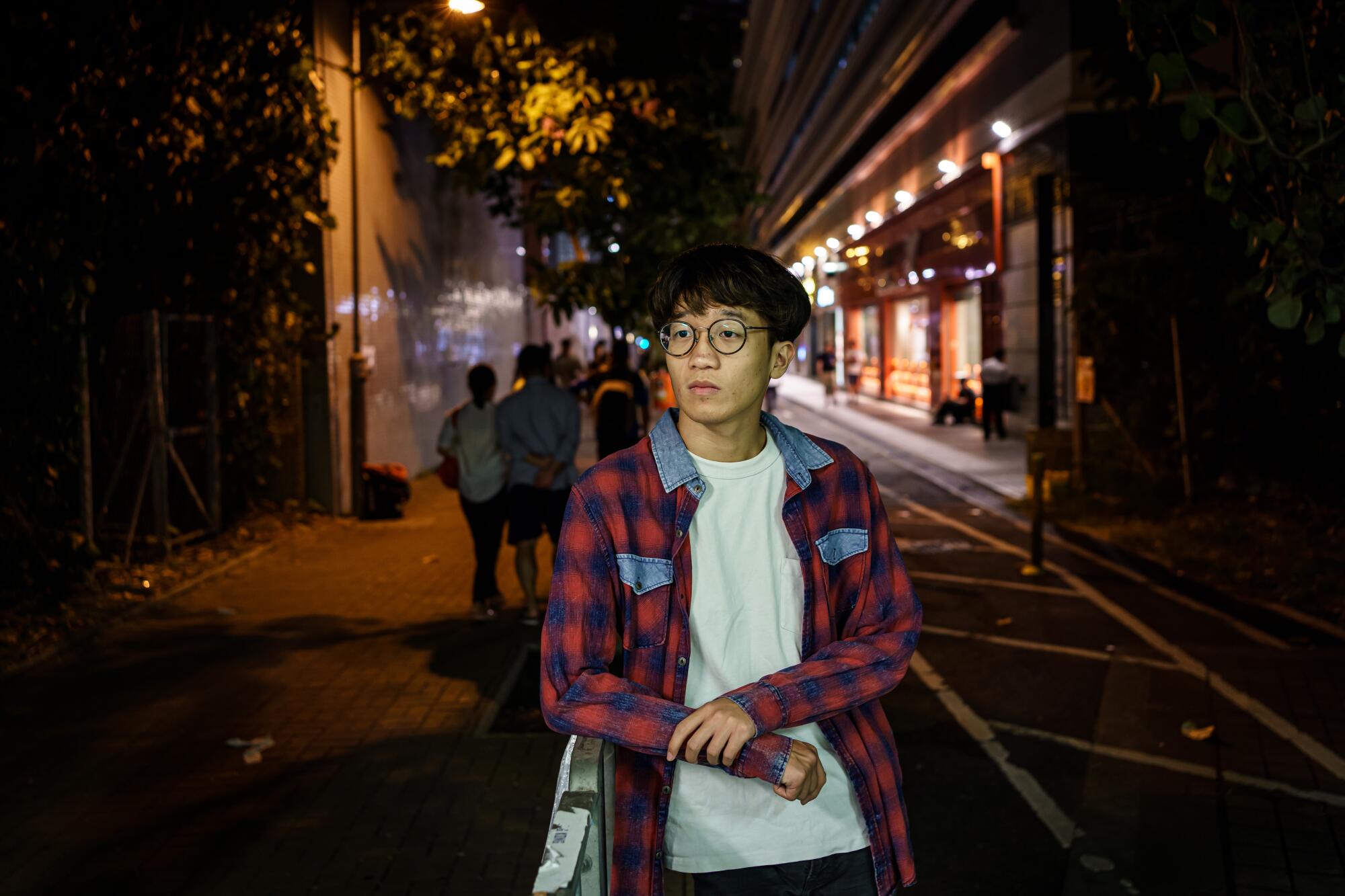
It was Oct. 6, two days after Hong Kongâs government announced a ban on masks in public gatherings. Police had pounced on Chan in an alley, arresting him for illegal assembly, mask-wearing and possession of an offensive weapon â a laser pen in Chanâs bag â at a protest.
He is one of at least 4,500 people arrested in Hong Kongâs protests so far, many of them students, some as young as 12 years old. While a majority of Hong Kong society cutting across all generations supports the protests â as evidenced by the overwhelming win for pro-democracy candidates in local elections this week â itâs mostly youngsters like Chan who have confronted the police face to face.
Ho was in another part of the city, accompanying injured protesters to a hospital, when he heard about the arrest. He shuddered as he dialed the number for Chanâs parents.
âEddie, why didnât you stop my son?â Chanâs mother cried as she heard the news.
Chanâs father was quiet, then sarcastic. âYou guys have got the team to manage this, right? I donât have to do anything, right?â he scoffed.
For the first time, Ho didnât know what to say.
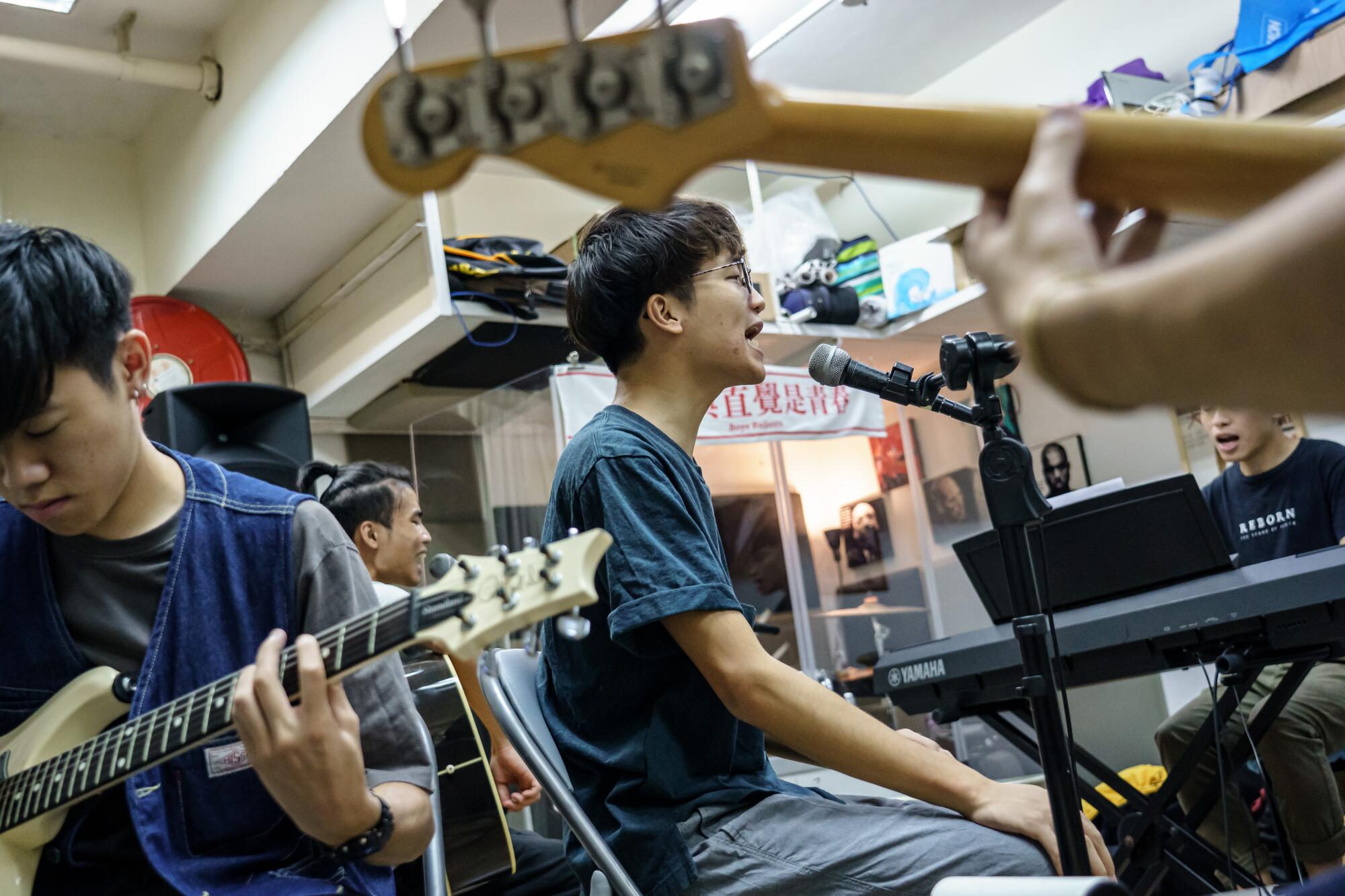
Boyz Reborn began in 2011 as Big Boyz Club, a group of nine 11-year-olds who were neglected by teachers because they had bad grades and were distant from parents who spent long hours at work.
Many of their early songs were about academic pressure and wanting to be worth more than their schoolwork.
In Hong Kong, a hyper-capitalistic society with one of the worst levels of wealth inequality in the world, failures tend to be blamed on the individual, Ho said.
âWe usually blame the victim, like: You donât work hard enough, so you donât have enough money to pay for rent. You donât study hard enough, so you canât get a good job,â he said.
Only when he became a social worker did Ho realize that public policies were behind many of Hong Kongâs housing, welfare and inequality problems. He brought the boys along on volunteering trips, determined to instill a sense of civic responsibility in them.
âYouâve got to love and care for the place that you live in, and you will try to make it better,â he said. âIf thereâs something bad happening in this place, you should do something about it. You shouldnât just sit and see it go down.â
Soon, their songs shifted from the personal to the political. They sang about education reform, urban poverty and environmental protection. One of their top hits was a music video in which they stood on a beach, hands linked, singing against a proposed land reclamation project.
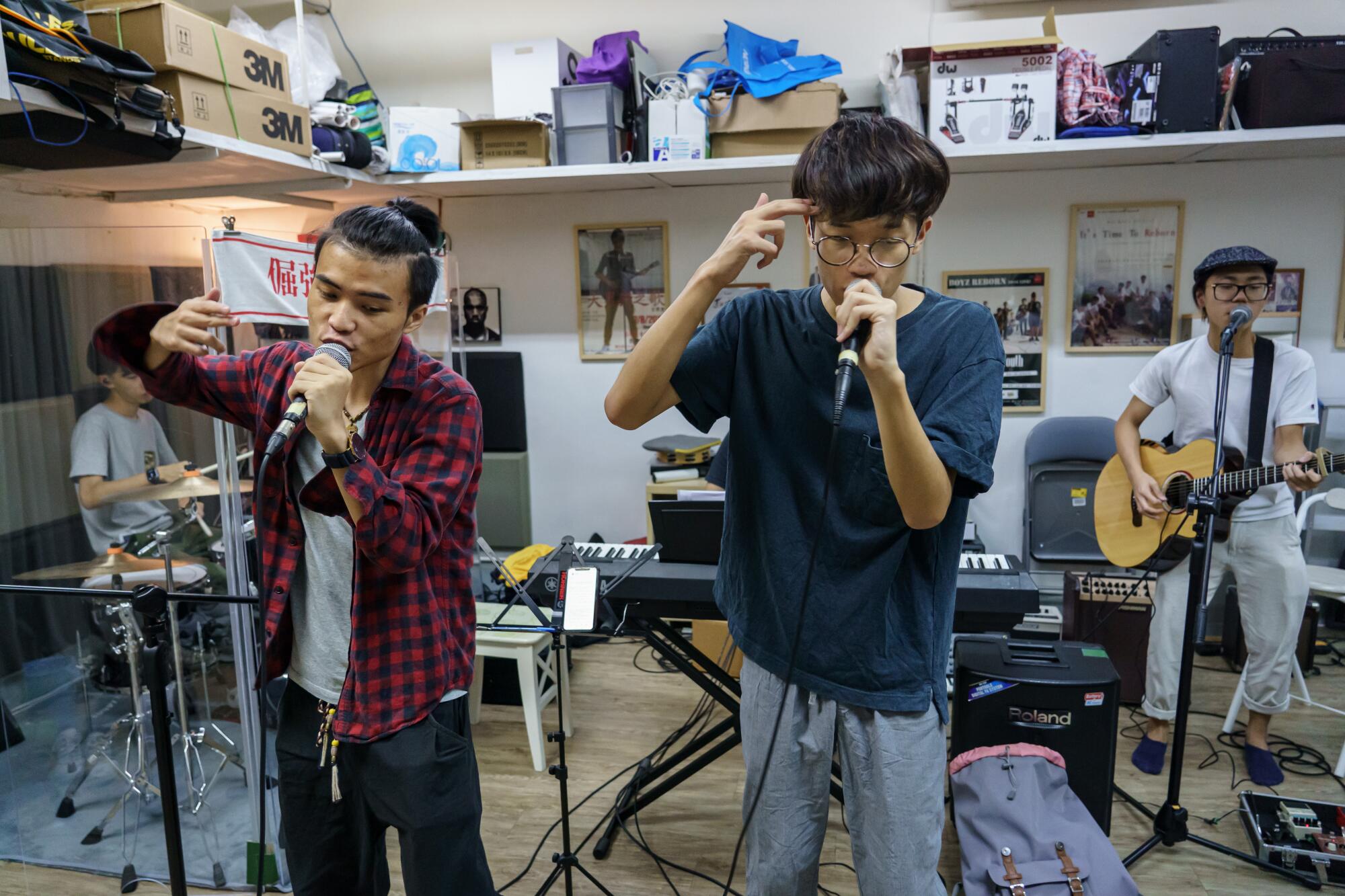
In 2012, Hong Kongâs secondary school students led a movement against a proposed âmoral and national educationâ curriculum that would have reshaped history textbooks in the Chinese Communist Partyâs favor.
The band wrote a song about freedom of thought.
In 2014, police fired tear gas at protesters occupying downtown Hong Kong and demanding universal voting rights in the Umbrella Movement.
The band wrote a song about tear gas and performed on stage in the protest camps.
At that point, Ho said the social work agency â which didnât respond to request for comment â pressured him to keep away from politics.
At church (Ho is a devout Christian), he was criticized for being too secular.
âThey would say, âYou should go to church, you should pray to God, you shouldnât get involved into the conflict of the people. Itâs not spiritual,â â he said.
But the boys refused to stop. They moved out of the community center, changed the bandâs name and wrote a song about holding on to their values despite the apathetic mainstream. Recently, their songs were also blocked from music streaming sites in mainland China.
âSome people say our songs are politicized. But to us, we are just speaking our truth,â Chan said.
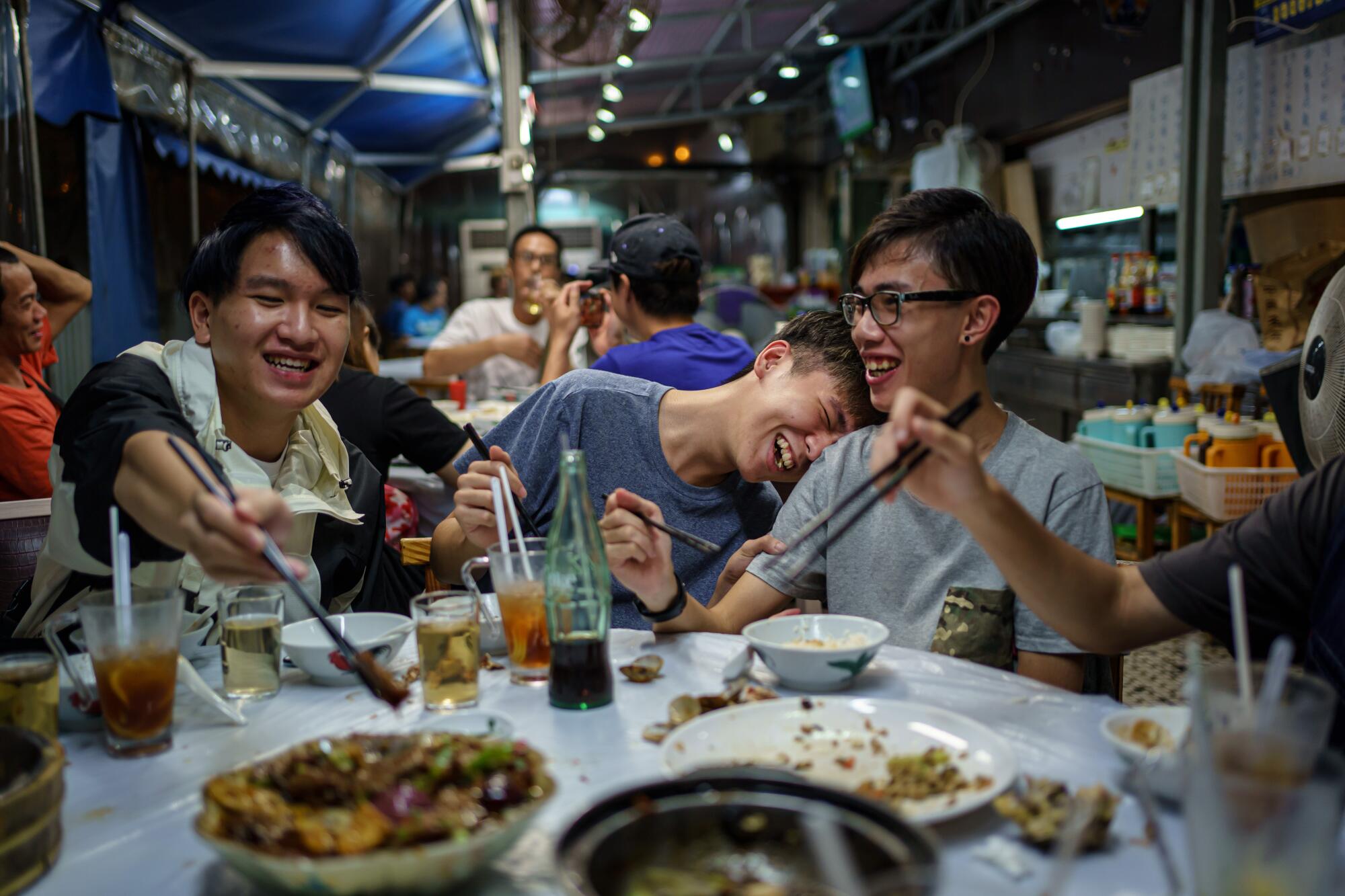
Five years later, the mood in Hong Kong has changed. Social workers are protesting â as are lawyers, doctors, teachers, white-collar office workers and many Christians. Ho believes itâs because the problems in Hong Kong have become more apparent in recent years.
The much stronger police response to this yearâs protests has also triggered public anger, even among those who are not at the front lines.
âThe protests are too intense, too violent. I didnât go out,â said CT Yeung, 33, an English teacher at the boysâ former primary school.
His middle-aged peers are newly married, struggling to pay mortgage and raise kids, carrying too many burdens to risk them on the streets. They canât afford to face off with police like the students are doing, Yeung said. But he supports them.
One night in October, one of his former students â a classmate of the Boyz Reborn members â was arrested for the second time during a protest. Yeung sent him an intentionally vague message on Instagram: âHow are you doing? Will you come visit soon?â
Then he deleted it, worried about potential repercussions.
âI cried,â Yeung said. He felt ridiculous for deleting his own message, but also afraid.
âThe youngsters, they are brave,â he said. âI understand why they keep going out every time. Actually, theyâre protecting us. If there were no front-liners and no noise and no news, no one would pay attention to these issue anymore.â
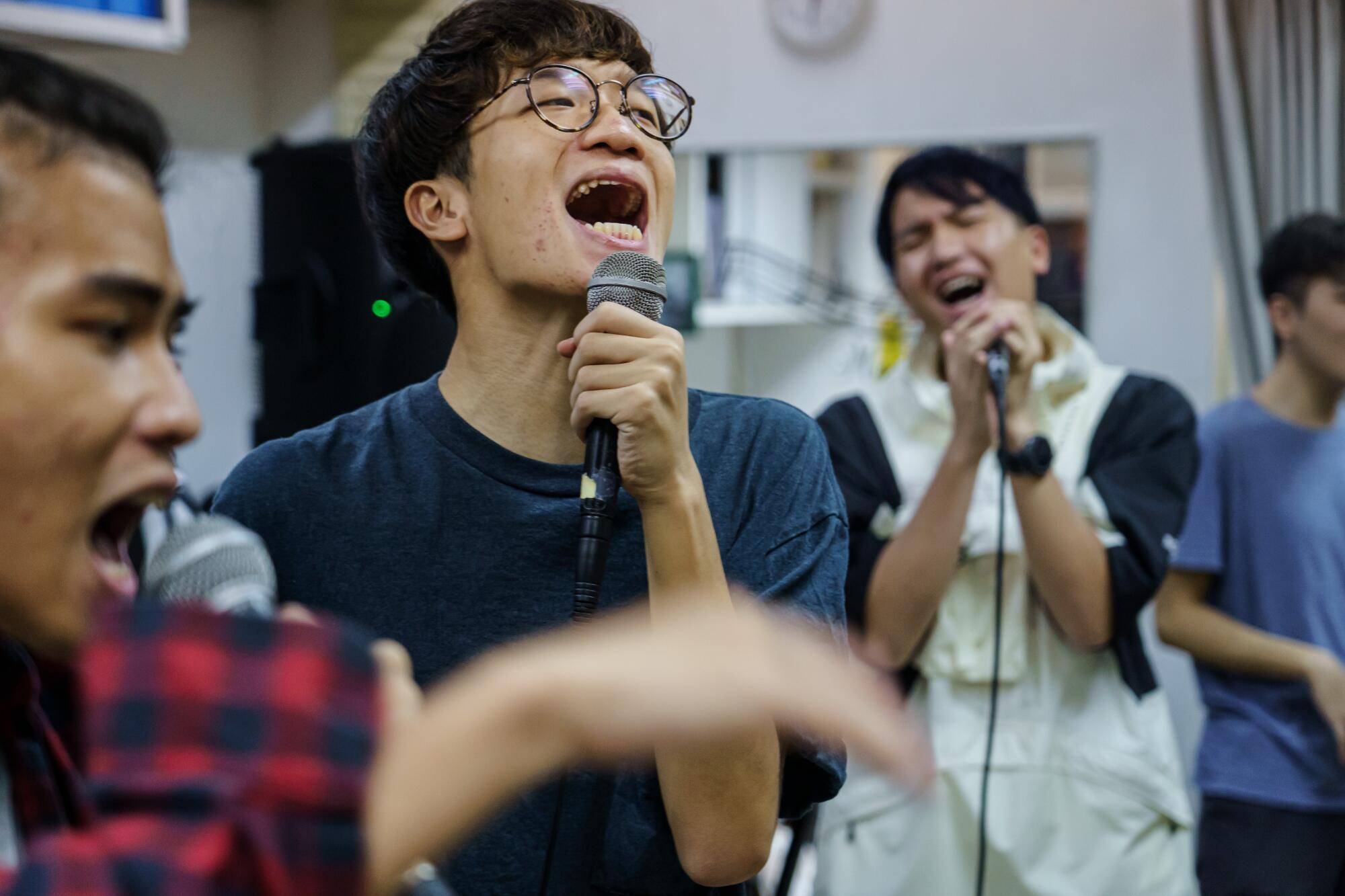
When the boys perform, they hang up a red and white towel emblazoned with a lyric from one of their songs: âYouth is being stubborn and following your intuition.â
Chan, who has floppy hair and big glasses, tends to crumple as he sings, grasping the mic with both hands as if heâs holding on for his life.
The band members say that heâs their âangry bird,â the most emotional and impulsive one. Itâs a joke, but one that often worries them. Chan takes medication for anxiety and depression and has veered near suicide several times. The latest was earlier this summer, just a few weeks into the protests.

âEver since Umbrella I had this strong feeling: What Iâm doing right now is just helping Hong Kong to die a little slower,â Chan said.
He listed recent instances of Hong Kongâs âdeathâ: disqualification of pro-democracy candidates in local elections, arrest of activists and protest leaders, kidnapping of booksellers, and, behind all these issues, the governmentâs accountability to Beijing instead of to the people.
When more than a million people marched in unprecedented peaceful protests against an extradition bill that would have allowed deportation of suspected criminals to China, Chan was shocked. It felt like the whole city had suddenly awakened.
But the government didnât budge. Several people then killed themselves, leaving protest-related messages behind. Police brutality grew worse and worse, with no accountability for officersâ actions, while many protesters turned violent as well.
Worse, his parents were against the protests. They argued with Chan more and more, asking him not to join the protests and eventually kicking him out of the house.
âThey wish I could just be a normal, obedient son who doesnât touch politics, who goes to eat dinner with them⌠They want me to put family first. But there are other things that are more important right now,â Chan said. âI canât meet their expectations.â
That was what tore Chan apart: daily guilt, watching police clash with people on the streets, wishing he could do more, then facing his parentsâ criticism and disappointment.
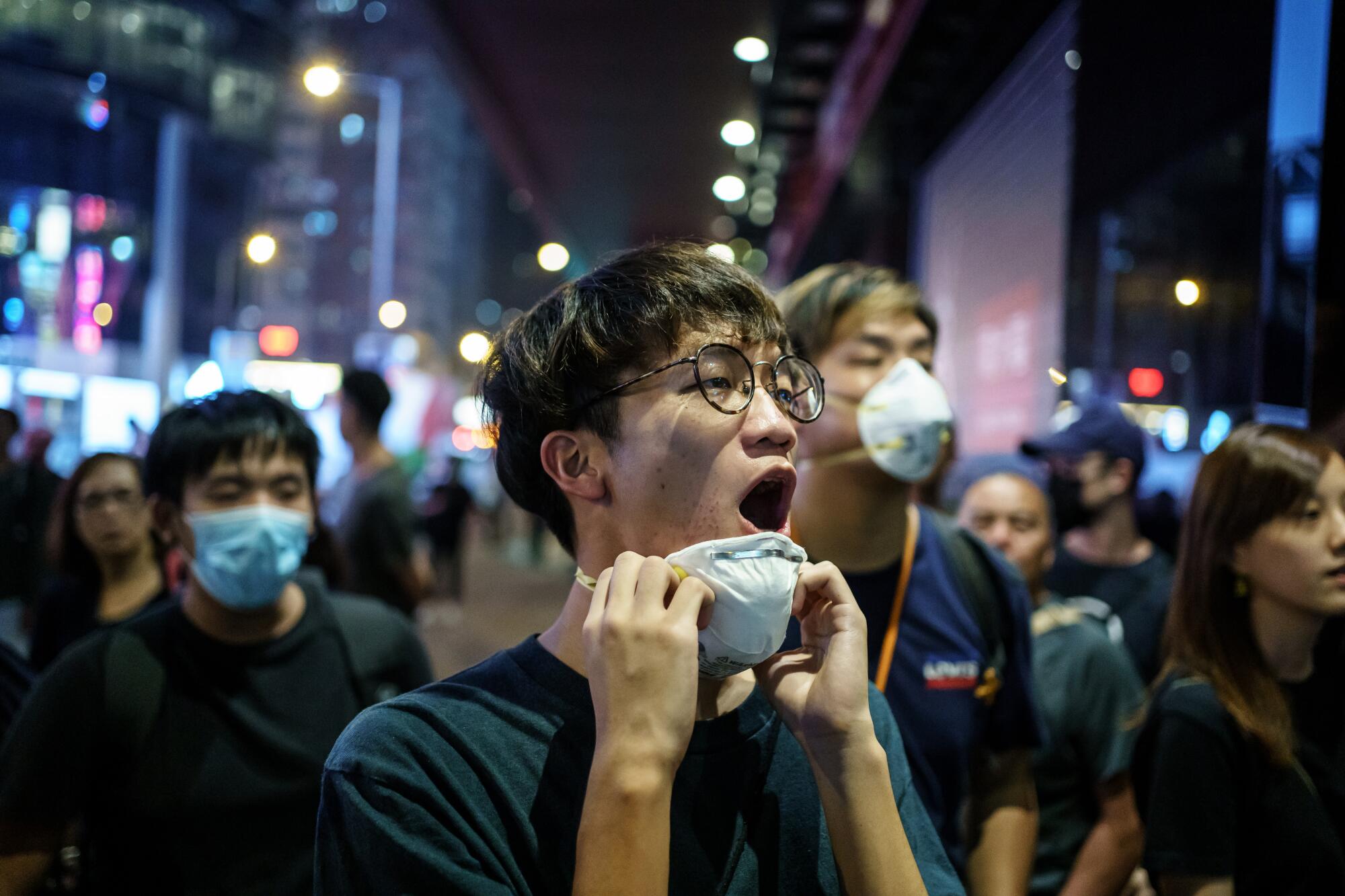
Since his arrest, his mom had also become panicky, worrying that something worse would happen to him. His father was more depressed than anxious, Chan said.
âHe feels like heâs slowly losing me,â he said.
Public health experts warn that the last few months of unrest have created a âmental health epidemicâ in Hong Kong. A recent survey of about 2,700 secondary school students by the Hong Kong Federation of Youth Groups found that more than half showed signs of depression.
Another study by Hong Kong University in July showed that nearly 10% of Hong Kong citizens of all ages were likely to be depressed, an increase from about 5% during the Umbrella Movement and just 1.1% before that.
Since his arrest, Chan has stopped going to the front lines. Instead, heâs running a social workersâ support group for even younger front-liners: middle-schoolers, ages 12 to 16. They try to provide psychological support, a space for young protesters to process what theyâre seeing and feeling.
âTheyâre just teenagers,â Chan said, then acknowledged: âIâm a teenager, too.â
One of Boyz Rebornâs latest songs is called âHow can I save you?â Itâs an expression of how helpless Chan feels, trying to accompany the middle-schoolers but fearing their arrest.
âYou just donât want them to carry so much, to pay such a high cost,â he said.
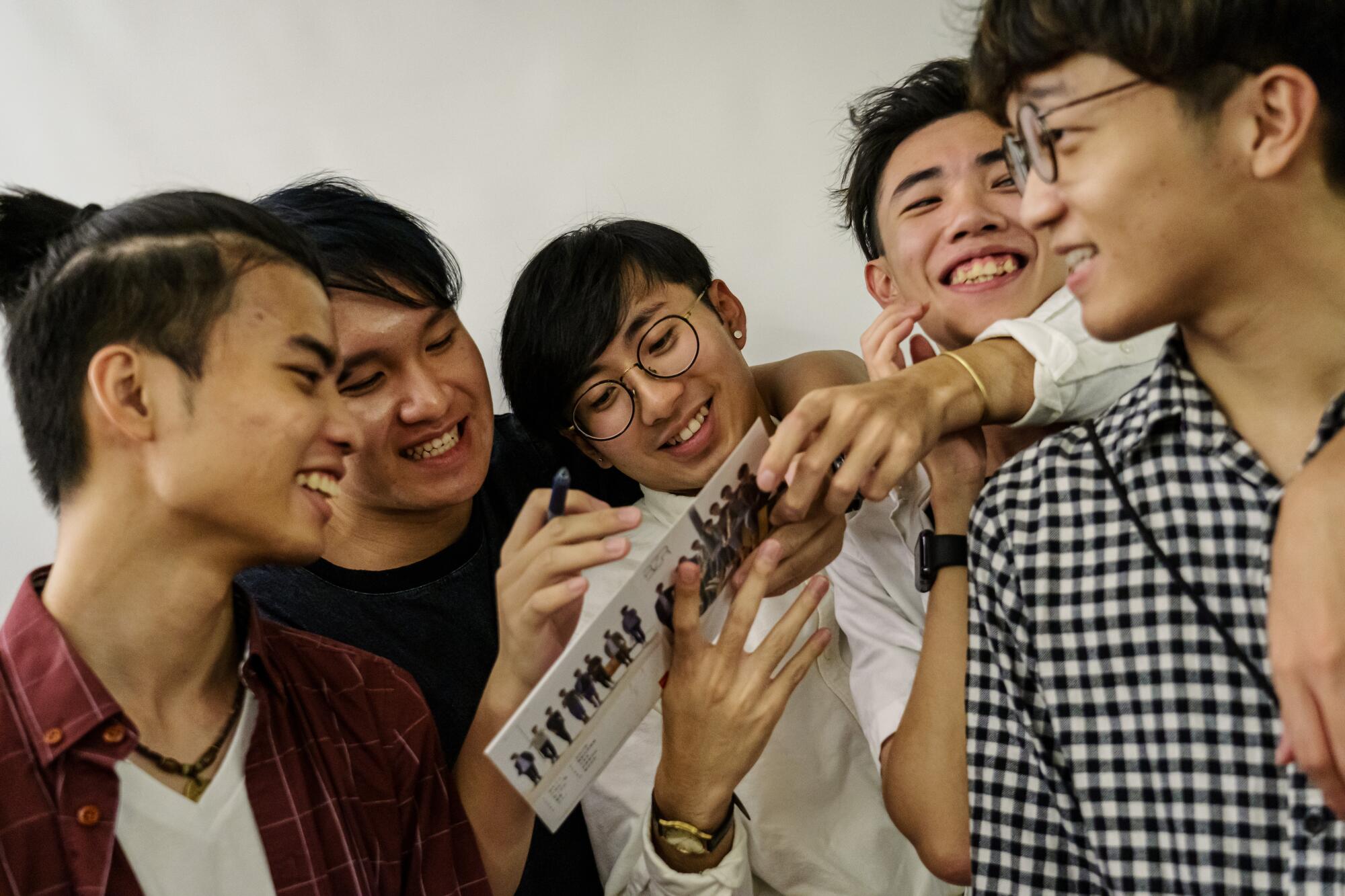
::
As protests continue to escalate, authorities in Beijing and Hong Kong have issued dozens of statements calling protesters violent rioters, comparing them to Islamic State and their liberal ideals to an infectious disease.
In August, Chief Executive Carrie Lam said in a press briefing that protesters were âdestroying Hong Kongâs economyâ because they had âno stake in society.â On the streets, Hong Kong police call protesters âcockroaches,â while protesters curse their families in return.
Ho compared authoritiesâ behavior to that of authoritarian parents who donât know how to listen.
âThey are like more traditional type of parents, like: We are parents, we are the government. When I told you to do something, you should do it. When I told you to believe in something, you should follow.â
âThey donât know what it feels like to be a teenager in Hong Kong,â he said.
More to Read
Sign up for Essential California
The most important California stories and recommendations in your inbox every morning.
You may occasionally receive promotional content from the Los Angeles Times.

